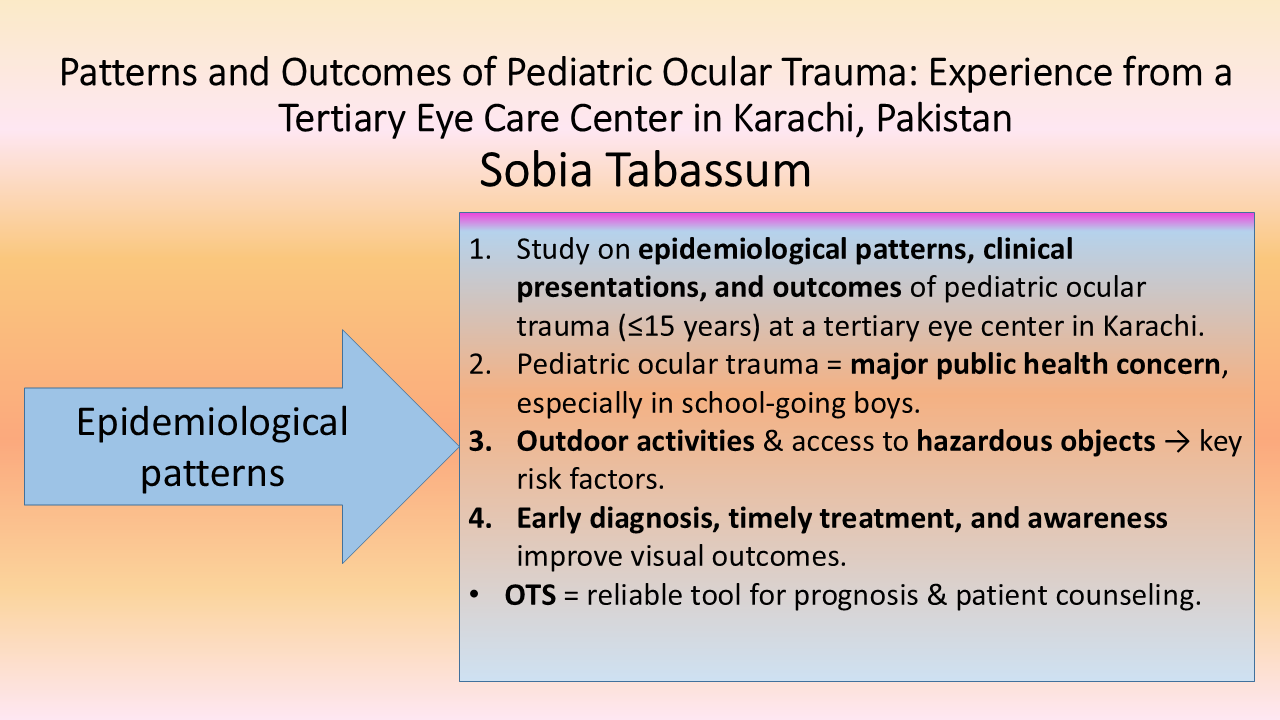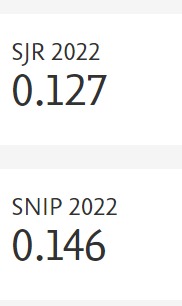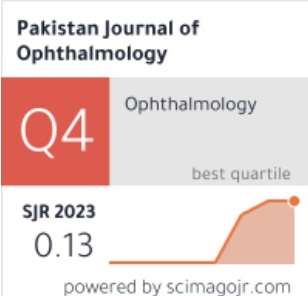Patterns and Outcomes of Pediatric Ocular Trauma: Experience from a Tertiary Eye Care Center in Karachi, Pakistan
Doi: 10.36351/pjo.v41i4.2131
DOI:
https://doi.org/10.36351/pjo.v41i4.2131Abstract
Purpose: To determine the epidemiological patterns, clinical presentations, and visual outcomes of pediatric ocular trauma in patients aged 15 years or younger presenting to a tertiary eye care center in Karachi.
Study Design: Descriptive observational study.
Place and Duration of Study: Al-Ibrahim Eye Hospital, Karachi, from July 2021 to March 2022.
Methods: A total of 237 eyes from 232 pediatric patients were included. Data were collected using structured questionnaires and comprehensive ophthalmologic examinations. Injuries were classified using the Birmingham Eye Trauma Terminology System (BETT) and the Ocular Trauma Classification System (OTCS). Treatment outcomes were analyzed using SPSS version 22 and a p-value of <0.05 was considered significant.
Results: The mean ageat presentation was 8.28±3.52 years, with boys (M: F = 2.6:1) more frequently affected. Most injuries occurred outdoors (49.4%) and were commonly caused by wooden sticks (24.5%) and sharp objects (21.9%). Closed globe injuries (58.4%) were more prevalent than open globe injuries (32.1%). The most frequent diagnosis was traumatic cataract (28.9%). Medical management was provided in 32.9% of cases, while 67.1% underwent surgical intervention. Significant improvement in visual acuity was observed post-treatment (Wilcoxon Signed-Rank Test, p = 0.0001). Visual outcomes correlated with the Ocular Trauma Score, with poorer outcomes in lower score categories.
Conclusion: Pediatric ocular trauma remains a major cause of visual morbidity, predominantly affecting boys engaged in outdoor activities. Timely management significantly improves visual prognosis. Preventive strategies and public awareness are essential to mitigate these largely preventable injuries.

Downloads
Published
How to Cite
Issue
Section
License
Copyright (c) 2025 Sobia Tabassum, Muhammad Faaz Malik, Sadia Bukhari, Israr Ahmed Bhutto, Muhammad Nasir

This work is licensed under a Creative Commons Attribution-NonCommercial 4.0 International License.






